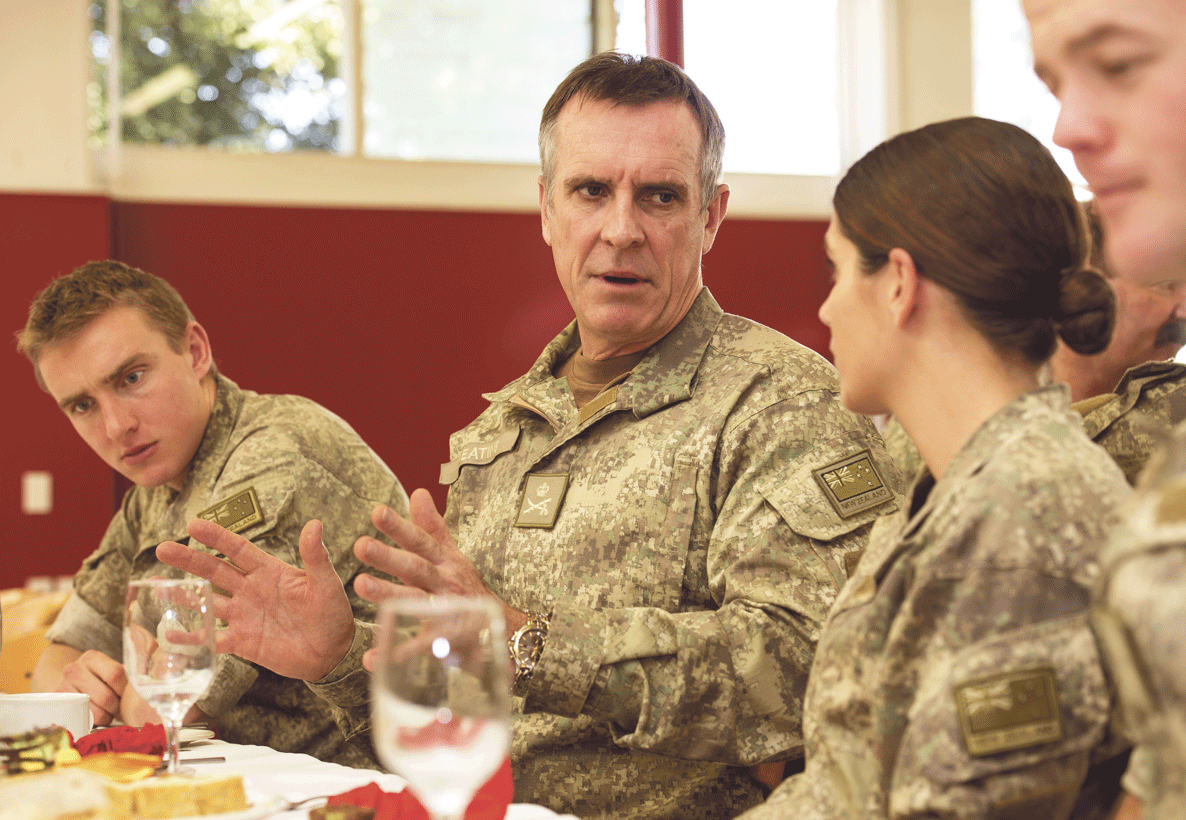 December 2014
December 2014
Feature
Lt General Tim Keating, MNZM
Following Wel-Com’s feature on leadership last month and a focus on family in this issue, we have invited prominent New Zealand leader, and Catholic, Chief of Defence Lieutenant General Tim Keating MNZM to contribute his thoughts on these two themes.
In my view, you never stop learning – even when you reach the pinnacle of your career, have a family or maybe decide you want to go back ‘to study’ later in life.
Everyday I know I learn more about human nature, what motivates or conversely demotivates people and what a challenge it can sometimes be to lead through all this.
In my world, a military world, leadership is a concept that we spend most of our careers learning to master.
From the moment we join the Defence Force you are encouraged to be a leader of self first, then a selfless leader of others, and all our training emphasises this approach.
In the traditional sense, family leadership is taught through generations, but the modern world poses many difficulties to that model as intergenerational bad practices can be passed on.
Military and family leadership are in many ways synonymous.
Parents must show true leadership to their children because it is their responsibility to influence them by demonstrating that you love and care for them deeply and want them to have a successful life.
Like military leadership, children learn best by example.
The concept that we, as servant leaders, look to serve our followers by helping them to achieve their own potential, enables me as the Chief of Defence, to concentrate on how my decisions can create effective relationships with our people and their families.
In serving our military families, I must be aware of the impact the decisions I make have on the families as these decisions can either enable or disable the Defence Force’s ability to perform its role.
There is a long held truism in the Defence Force that a happy family means the service person can concentrate on their important and often demanding role.
As the leader of around 14,000 people I am well aware that the decisions I make often impact on individuals and their families and the consequence this can affect the organisation longer term.
My goal is to continue to support a leadership culture where our people and their families are treated with the understanding required for our Force to continue to deliver its demanding role as a ‘Force for Good’ for New Zealand.
In doing so, I hope our people and their families become ambassadors to the type of family and community spirit we all aspire to as New Zealanders